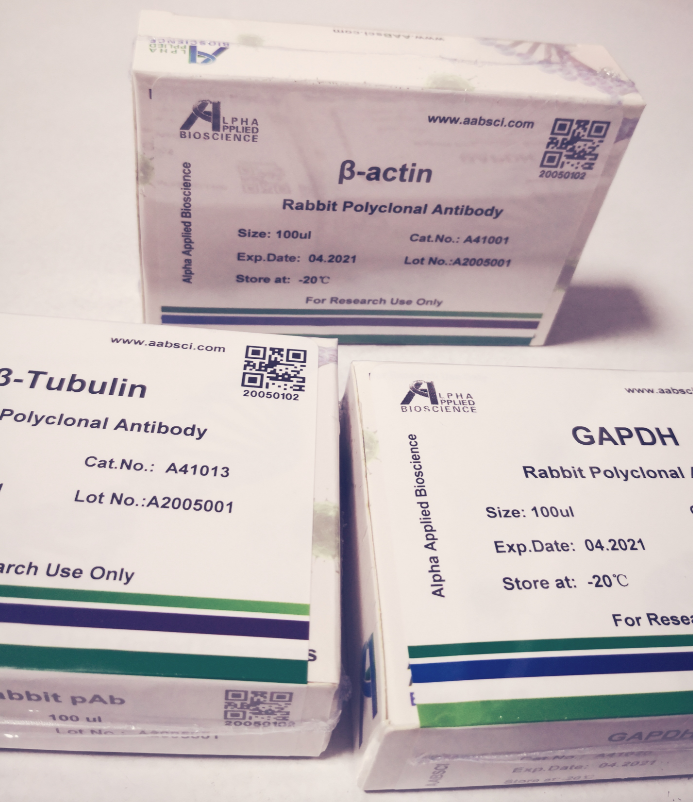

Product description
tumor protein p63(TP63) Homo sapiens This gene encodes a member of the p53 family of transcription factors. The functional domains of p53 family proteins include an N-terminal transactivation domain, a central DNA-binding domain and an oligomerization
Source
Rabbit
Applications
WB,IHC,ELISA
Reactivity
Human,Mouse,Rat
Dilution
WB: 1/500 - 1/2000. IHC: 1:100-300 ELISA: 1/20000. Not yet tested in other applications.
Storage
-20°C/1 year
Specificity
p63 Polyclonal Antibody detects endogenous levels of p63 protein.
Source/Purification
The antibody was affinity-purified from rabbit antiserum by affinity-chromatography using epitope-specific immunogen.
Immunogen
The antiserum was produced against synthesized peptide derived from the N-terminal region of human TP63. AA range:51-100
Uniprot No
Q9H3D4
Alternative names
TP63; KET; P63; P73H; P73L; TP73L; Tumor protein 63; p63; Chronic ulcerative stomatitis protein; CUSP; Keratinocyte transcription factor KET; Transformation-related protein 63; TP63; Tumor protein p73-like; p73L; p40; p51
Form
Liquid in PBS containing 50% glycerol, 0.5% BSA and 0.02% sodium azide.
Clonality
Polyclonal
Background
tumor protein p63(TP63) Homo sapiens This gene encodes a member of the p53 family of transcription factors. The functional domains of p53 family proteins include an N-terminal transactivation domain, a central DNA-binding domain and an oligomerization
Other
Gene_name: TP63 ; Protein_name: Tumor protein 63; Expression: Keratinocyte,Lymph,Placenta,Prostate,Skeletal muscle,
Mol.Wt (Da)
77 kD
Concentration
1 mg/ml
-

Promotion
-

Order
-

Online message
-

Help center
 400-8363-211
400-8363-211
 Login
Login

 DataSheet
DataSheet
